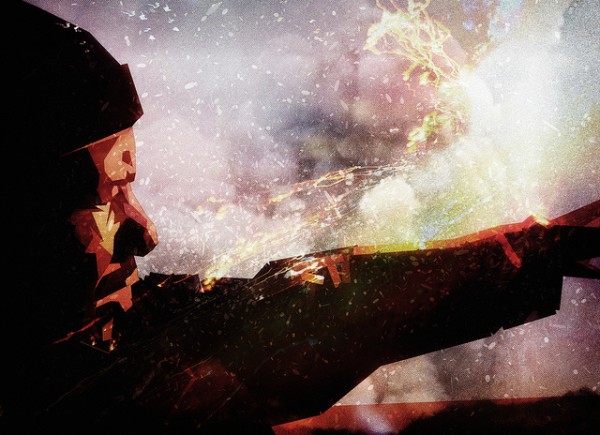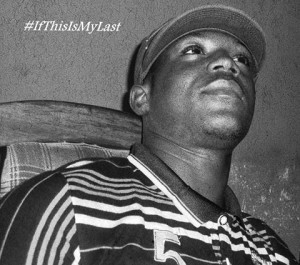 He first time he came across those words in a community library.
He first time he came across those words in a community library.
Books at the library were being rearranged and those tagged ‘old’ were being discarded to make way for new ones. He had seen those words written boldly on the cover of a book sitting on the floor of the bookshelf. Like ant to sugar, he had felt drawn to the book.
It wasn’t the way the book looked that drew him to it; the book was worn and dirty. It wasn’t even the name of the author; he had never heard of him. But there was something about those words that reached out to him and drew him closer. He had found himself picking up the book and staring at those three words: Not Yet Uhuru. He had clutched it to his chest, stealing glances at the words as he helped arrange books on the shelf.
He would realize later that it was a book by Kenya’s first Vice-President, Oginga Odinga. He would learn later that Uhuru was a Swahili word that meant freedom. He would think of what those words meant in light of his new knowledge of what Uhuru meant. He would ask himself over and over again why people that had gained independence would be told that they were still not free.
As the years went by, he came across those words again. Politicians used them in campaigns to sell their plans, telling the people that they only had an illusion of freedom, that true freedom had not yet arrived and that true freedom could only be achieved if the people followed them.
He followed those words all the way through Ngugi Wa Thiong’o’s writings where Ngugi proved painstakingly, that what was obtainable was not what was struggled for—a charade and a continuation of the unfinished work of the colonialists.
He would hear those words from his mother as she explained later to him that his father, after exhausting himself beating her, would slump on a chair, breathing heavily through his nostrils and mouth, snap his fingers at her and tell her, “It is not yet Uhuru for you o. Let me come back from palmy joint this evening and not meet my food, I will remind you in the only language you understand how much your people collected as bride price and how long it took me to pay back the debt incurred from trying to pay your bride price.” She would cower in fear, too ashamed to look up, too scared to remind him that he had had no job for 2 years and had not dropped a kobo for house-keeping.
But sitting on a tree stump in the jungle of Aladra, a sub-machine gun slung over his shoulder, those words mean different things to Alabi now. He heard the guerrilla leader, Commander Abinti, shout encouragements, trying to rally his fighters.
They were all exhausted. They had been fighting Government forces for 2 years now and were no closer to victory than they were when they first took to the trenches. They had lost comrades, but as their reputation grew, their followers did too.
Not Yet Uhuru was the only phrase that meant anything to the commander. He screamed it early in the morning, shouted it during the day and bellowed it to them before they went to bed. It was his idea of encouragement, his idea of what was needed to keep them moving.
But today would not be like the other days. They were not just exhausted.There was something else. Today, the commander would cease to command them. He had betrayed them. They knew. He didn’t know they did.
“Not yet Uhuru!”
He shouted those words again, picking up his gun and slipping on his torn boots.
“We march on onto victory! A thousand armies cannot stop us. We do not have their strength, but we have convictions. We do not have their numbers, but we have deep-rooted beliefs. We do not have as much weapons as they do, but we have dreams of what lie ahead after we win this war. Defeat is not an option. Retreat is not either. We win or we perish. There is no other way.”
They watch him calmly, listening to him ramble on. Other days, they would have scrambled to their feet, answering him as he cheered them on. But today was not ‘other days,’ today is today.
He continued talking: “This is just a resting place. We will keep on moving today. Our destination is Kaladi village. That is where we will stay tonight and make our fortress. We march on, onward to victory. It is not yet Uhuru!”
Alabi’s eyes met the other fighters’ on hearing the name of the village. Their fears and doubts had been confirmed. The commander had indeed betrayed them.
The oldest among the fighters stood up and began to walk towards the commander, his gun dangling loosely from his hands: “Yes commander, it is not yet Uhuru for us. But maybe it is for you.” With that, he cocked his gun and trained his gun on the commander. It was their cue. They all stood up with their guns drawn, advancing towards the commander, circling him like predators circle a prey.
“Comrades!” The commander called, his eyes going round them in disbelief. “What is going on? Is this mutiny? Should we allow the enemy to divide our ranks? What exactly is going on? Who put you up to this? What were you promised that would make you turn your backs on everything we have fought and bled for these past years?”
Aresu, a one-eyed giant who had lost his right eye in a knife fight cleared his throat, “That exactly is what we have been asking ourselves. Abinti, what were you promised? Look at me. I bled for you. I was prepared to walk into hell itself if you asked me to. Abinti, what were you promised?”
“What?!” Abinti feigned surprise. “What was I promised to do what? Wait a minute, comrades, you sure are not accusing me of betrayal. That is the highest crime a guerrilla can commit, and the penalty is death. Why would I betray men that have struggled together with me? It is impossible!”
Alabi who had been quiet all the while lowered his gun and approached the commander. When he got to him, he dipped his hand into his pocket and brought out a sheet of paper. It was rumpled, but the words on it were clear enough. The commander tried to snatch the paper from him, but he was hit with the butt of a gun by someone standing behind him. He sank to his knees, his hands covering his face.
Alabi read out the words: BRING THEM TO KALADI VILLAGE. ALL OF THEM. WE WILL ATTACK IN THE NIGHT WITH 1000 TROOPS. YOU WILL BE ARRESTED TOO BUT WILL BE GRANTED PRESIDENTIAL PARDON AND GIVEN A HIGH-RANKING GOVERNMENT POSITION. DO NOT FAIL!
Abinti covered his face, whimpering like a wounded animal. He knew what fate awaited him, but it was the legacy he would leave, what he would be remembered for and as, what would be read about him years from now that scared him.
He knew these men. He had led them for two years. They didn’t believe in defeat. Sometimes their courage and confidence shamed him. He wished he had enough enthusiasm, but beyond the outward show of courage and conviction about victory, he was a scared and faithless man. He had always believed that with or without him, these men would win. As he knelt there, a hundred guns pointing at him, he was convinced more than ever that these men would win without him, and he would be remembered as the sell-out, the leader that attempted to sell out his followers.
“Abinti!” Alabi shouted, “It is not yet Uhuru for us. Our journey has not yet come to an end, and it won’t until we die or win. But your own journey ends today, here. Your betrayal is sad and painful, but it is appreciated. You have saved us the trouble of having to return to the trenches to fight you if you had led us to victory and taken power.”
He turned to the others, “We will win! We will not fail! Tomorrow morning we march on, but first Abinti’s journey must end now. First we must drink over his corpse. And then we must remember what he was and what he did. Whoever lives among us must carry the story of his betrayal and tell it to the world. The world must know that Abinti was never a hero. He never died like one. Abinti is a traitor, he must die like one.”
Gunshots rang out. Bullets struggled to dislodge each other in Abinti’s body as the guerrillas pumped him full of lead.
Alabi watched them spit over Abinti’s corpse. He watched them sing that night. There was no way for them to know that he was himself a traitor too. There was no way for them to know that he had a hand in it too and that he was in fact the mastermind. There was no way for them to know that it was he that made contact with the Government forces.
There was no way for them to know that it was he that wrote the note and sent it through a messenger to deliver to Abinti. There was no way for them to know that they were right where he wanted them to be, but most importantly, where the Army General commanding the Nigerian Special Forces wanted them to be. There was no way for them to know that they were never meant to go to Kaladi village.
Here, surrounded by the biggest trees in Aladra, was where he wanted them to be. He watched them singing and drinking. Soon, the troops would arrive. They would kill everyone and leave just five, including him, alive. He would be captured and announced as the leader. The President would ask him to sign a deal and join him in rebuilding the nation. He would make a show of rejecting it and vow to die in jail. Eventually, he would announce that he had accepted “in the interest of peace and national unity.”
But these men dancing here would never see that day. They would all die here. There will never be Uhuru for them. But they don’t know that. Tomorrow looks promised to them. But it will never come.
***********
Post image by Surian Soosay via Flickr
About the Author:
 I am a young Nigerian writer with flair for prose and poetry. I write because I cannot not write.
I am a young Nigerian writer with flair for prose and poetry. I write because I cannot not write.








A-jay February 13, 2016 08:53
Wow, some people are born writers. Love the flow. I wonder when brittle paper will publish mine.